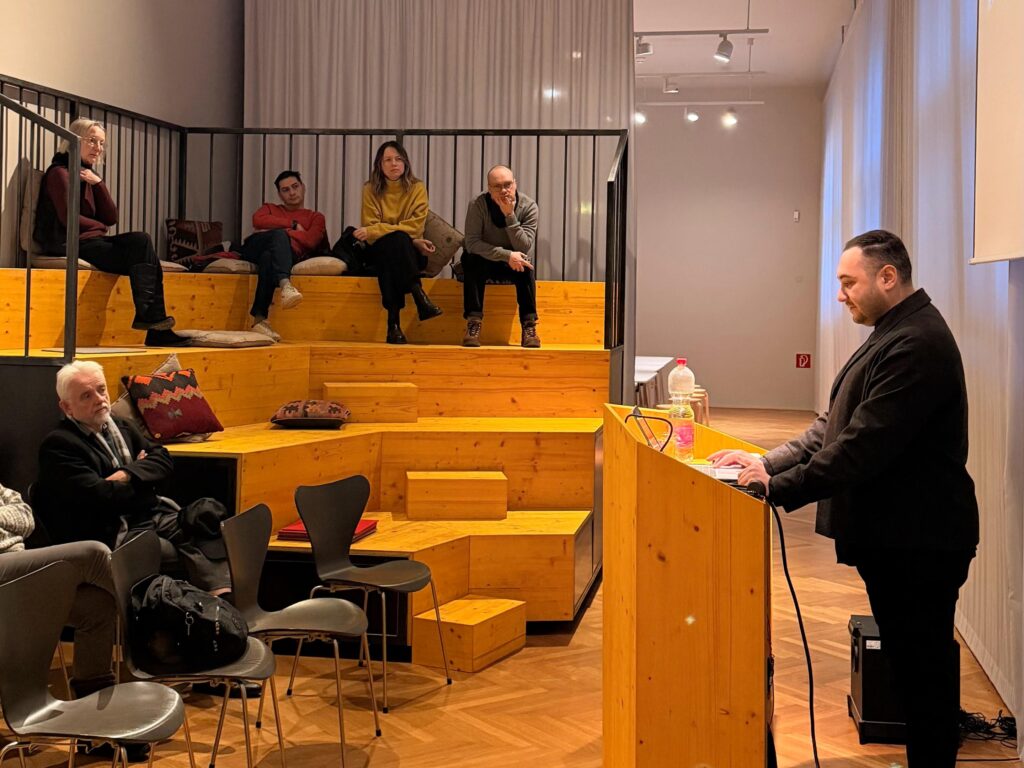Lost in Transition? Presenting a New Series of Video Interviews on Post-Soviet Transformations
In December 1991 — 33 years ago — the Soviet Union ceased to exist and 15 newly independent states ventured on very different paths with developments that shape our reality until today. We are excited to present a new series of video interviews featuring voices from Armenia, Ukraine, Georgia, and Belarus as part of the “Lost in Transition?” project.
In the third phase of the project, “Understanding and Overcoming Crises,” we connect the legacy of the 1990s transition with contemporary challenges and the new forms of transformation we are currently facing. From the war in Ukraine and the political crisis in Georgia to the dire situation of Belarusian civil society and the loss of Nagorno-Karabakh for Armenia — all of these events are deeply rooted in the collapse of the Soviet Union and the turbulent transition that followed. Through the voices of 10 new contemporary witnesses, we delve into personal insights that help us better understand the historical roots and present struggles of their countries. Their stories also shed light on key moments from the late 1990s and 2000s, including the “Color Revolutions,” which marked pivotal chapters in the region’s ongoing political and societal transformations.
Georgia
Giorgi Meladze is an Associate Professor at the School of Law at Ilia State University in Tbilisi, Georgia. A former activist in the KMARA movement, a youth-led civic initiative opposing Shevardnadze’s regime in the early 2000s, he brings years of experience in training grassroots organizations and human rights activists both in Georgia and internationally. Giorgi is also one of the organizers of the ჯიუტი/GEUT (“Stubborn Resistance”) movement in Georgia.
In 1986, Rusudan Kobakhidze graduated from the Department of Classical Philology at Tbilisi State University. She later pursued a Doctoral Program in Byzantine Philology at the same university, earning her PhD in 2017. Since 2014, she has been a researcher at the Soviet Past Research Laboratory, and since 2018, she has taught Georgian Language and Literature at the Green School. Starting in 2020, Rusudan has been teaching an academic writing course for ISU Master’s students specializing in Modern Georgian History.
Belarus
Siarhei Chareuski is a Belarusian art historian, artist, journalist, and public figure. His biography reflects the shifts in creative and social choices made by young people in a major Belarusian city during the 1980s. Siarhei received a solid foundation in art education, graduating from the Glebov Art College in Minsk (1982–1987). While still a student, he became involved in informal youth cultural groups, such as “Maistroŭnia” (the Belarusian Singing and Drama Workshop, which ceased operations following a conflict with authorities in 1984) and “Talaka” (1985–1990). Since the early 1990s, Siarhei has been actively collaborating with independent Belarusian journalism. He created artistic compositions for the newspaper Svaaboda and, in 1991, contributed to the revival of “Nasha Niva”, a legendary symbol of national and cultural revival in the early 20th century. In the 2000s, Siarhei began teaching and is now a faculty member at the European Humanities University (Vilnius).
Vintsuk (Valentyn) Viachorka is a Belarusian politician and linguist, and a pioneer of the independent youth movement of the 1980s. Coming from a Soviet party elite family, he rejected Soviet ideology, seeking cultural and national identity. While a student at Belarusian State University, he co-founded the youth organizations “Maistroŭnia” and “Talaka” and played a key role in the Confederation of Belarusian Youth Associations. In the late 1980s, he became a founding member of the Belarusian Popular Front (BNF), leading the organization from 1999 to 2007. Since 2020, he has lived in exile.
Armenia
Lala Aslikyan was born in 1975. She earned her first higher education degree in Psychology from Yerevan State University. Later, she completed her Master’s degree in Political Science at the American University of Armenia. Lala has had a successful career working with various international organizations, including the USAID program in the United States and the United Nations office in Armenia, as well as several local non-governmental organizations.
Isabella Sargsyan is a human rights expert with over 24 years of experience. She holds degrees from Yerevan State University and the London School of Economics. Since 2008, she has worked at the Eurasia Partnership Foundation (EPF), leading advocacy efforts with the UN, OSCE, and Council of Europe, and representing EPF in public councils in Armenia. An expert on Freedom of Religion or Belief, Isabella advises governments and civil society across OSCE countries. In 2017, she was awarded the Freedom Defender Award. She also serves on the board of Transparency International Armenia.
Ukraine
Join us for an insightful conversation with Pavlo Gudimov, a visionary art curator and witness to Ukraine’s transformative journey. Pavlo shares his unique perspective on how art and culture have played a pivotal role in shaping Ukraine’s national identity during times of change. Through his innovative projects, Pavlo bridges tradition and modernity, offering a deeper understanding of the resilience and creativity of the Ukrainian people. Discover how his work fosters artistic innovation and brings Ukraine’s cultural narrative to the international stage.
In this candid interview, Yuriy Hayev, a former Soviet journalist from Zaporizhzhia, shares his personal journey through a pivotal historical period—the collapse of the USSR and the emergence of an independent Ukraine. Drawing from decades of experience, he recounts the challenges of working under censorship, adapting to self-censorship, and navigating the moral dilemmas of journalism in a controlled state. Yuriy opens up about his transformation, from his early days as a factory newspaper contributor to becoming a voice in the democratic changes of post-Soviet Ukraine. Through anecdotes, he discusses the awakening moments that reshaped his identity, his struggle with ideological conformity, and his role in the cultural and political movements of the time. Join us for this compelling narrative of a journalist’s resilience and self-discovery in a world of shifting freedoms.
In this heartfelt interview, Olga Vakalo, a prominent journalist and public figure from Zaporizhzhia, shares her unique journey of transformation from being a product of the Soviet system to becoming a vocal advocate for Ukraine’s independence and identity. Reflecting on her experiences as a student during the Soviet Union’s final years and her early enthusiasm for Gorbachev’s reforms, Olga recounts her awakening to the contradictions of the system she once believed in. She candidly discusses her fears and hopes during Ukraine’s transition to independence, shedding light on the internal struggles of aligning her identity with a rapidly changing reality. This conversation offers a powerful narrative about self-discovery, resilience, and the shaping of a pro-Ukrainian civic stance during one of history’s most transformative periods.
Partners: Congress of Cultural Acitivists (Ukraine), Political Sphere (Lithuania/Belarus), Hazarashen (Armenia). With kind support of the German Foreign Office and Federal Foundation “Aufarbeitung”.





